
Tips to Make Your Kitchen Life More Efficient
Have you ever had a day when your kitchen is messy and you can't find anything?
Or maybe you've been working in the kitchen too long, and your body is starting to feel its effects?
If these things happen to you, you should follow these tips and tricks to make your kitchen life easier and more efficient.
Keep Tabs on Your Inventory.
If you've ever made a list of things to do and realized halfway through that the list is incomplete, you know how frustrating it is to start over. The same thing happens with kitchen inventory. If you don't track what needs to be restocked, you'll run out of important things for daily life—and who wants that?
Luckily, there are many ways to ensure you never run out of anything again. The first step is ensuring that every household member knows which items are low or need to be replaced immediately. Then, check in regularly with everyone who uses these items to know when they need to be replaced. Finally, automate your restocking process by setting up alerts and reminders for yourself and others who use the inventory items regularly.
Shop Wisely
Shopping for your kitchen can be fun and exciting, but it can also be frustrating and stressful. If you're unsure where to start, check out these tips and tricks to make your kitchen shopping experience easier and more efficient.
- Don't buy too much just because it's on sale. Yes, the price is right, but if you don't need it right now, there's no need to build up a backlog of stuff in your kitchen. This will make it harder for you when you need something particular—you'll have to sift through a lot of stuff that isn't quite what you want.
- Shop in person: There's no substitute for seeing the products in person before making a purchase. You might think that you know what color green looks like on a spatula or how big an apple slicer will be, but when you see them in person, you'll realize how wrong your assumptions were! It's always better to be able to hold something in your hand before buying it—even if that means paying more than online retailers charge.
- Don't buy cheap stuff: You might think purchasing affordable products means saving money—but that isn't always true! Cheap products often break quickly and require replacement, which means more money than if you had just paid a little bit more for a better quality product.
Getting Creative With Storage
The following tips will help you use your cupboards more efficiently and make room for everything without sacrificing style.
Use baskets.
Baskets can be used to store many different things—breadcrumbs, spices, napkins—but they're also great for holding smaller items like cooking utensils and cutting boards. If you don't want the basket on the countertop, consider hanging it from a hook or putting it in a cabinet door.
Rearrange the pantry shelves.
The pantry is often the first place people look when trying to store something new in their kitchen—and it's usually the last place they want to put it. Please take this opportunity to reorganize your pantry so that it makes sense for how you use your space. Consider moving things around so frequently used items are easily accessible, and less frequently used items are out of sight but still accessible (for example, canned goods or dry goods).
Get creative with vertical space.
If all else fails, try going vertical! You don’t need much room to hang up small baskets or containers from which you can store small items such as measuring spoons.
Use containers as organizers.
Many options are available now, like these glass jars double as measuring cups. They're also great for storing flour or sugar because they keep out pests like mice (and humans). They are available in various sizes, so you can find one that fits perfectly into whatever cabinet space is available in your kitchen.
Use Racks to Maximize Space
If you have a lot of pots, pans, or dishes that you use frequently, then using a rack is a great way to maximize space in your cabinets. You can hang them on the back of the door or use hooks on the wall to hang them inside the cabinet itself. This allows you to store items that would otherwise take up much more room if they were just stacked on shelves or kept in boxes on the floor of your cupboards.
Putting Things in Labeled Bins
Putting things in labeled bins is one of the best ways to organize your kitchen life. You can mark the containers by the type of food they contain, such as "vegetables" or "dairy." Small kitchens have their challenges, such as limited counter space, a small fridge, and a cramped oven. This may not be easy to find space for all of your groceries. Instead, try keeping them in labeled bins so you can quickly find what you need when cooking.
Ensure that each bin has an airtight seal so mold does not develop on any items stored inside. If you have small children in the house, it may be necessary to lock these bins up when not in use so they cannot access them. This will help prevent them from eating foods that are not safe for them until they are old enough to understand how dangerous these items could be for their health.
To ensure that your kitchen bins are working for you:
- Start with one bin for each family member and label it with their name.
- Create a bin for each type of food (crackers, cereal, etc.) and label them accordingly
- Create a bin for each day of the week or month (depending on how often you use certain items) and label them accordingly.
- Use a bold, easy-to-read font.
- Use different colors for different items so that they stand out from other labels (green for veggies, red for meat)
- If possible, use durable labels that won't come off quickly or fade over time (such as Avery labels)
Having a Cutting Board Comes in Handy
The kitchen is the hub of your home. You'll be spending a lot of time there, so it's important to ensure you're as comfortable and efficient as possible. One way to do this is by having a cutting board handy.
In addition to being convenient for chopping and slicing ingredients, having a cutting board on hand will help prevent accidents and injuries when you're trying to use knives or other sharp objects. For example, if you're cutting up some veggies for dinner, it's easy for them to slip off the countertop and onto your feet—and if they're sharp enough, they can cause serious injury.
If you don't have enough space in your kitchen to store a cutting board all the time, consider keeping one on hand when it's time to prepare dinner or snacks. You can also keep one out at all times so that it's always available when needed; this way, there won't be wasted time searching through drawers or cabinets looking for one.
Keeping Your Knives Sharp
A dull knife is the worst. It’s not just more dangerous to use than a sharp one, but it also takes forever to cut anything with it. And the problem is that most people don’t know how to sharpen their knives or think it’s too complicated.
And guess what? It isn’t! You can do it yourself in less than 10 minutes. Sharpen them regularly with a whetstone or an electric knife sharpener. This will help keep the blade's edge in good shape so it doesn't get damaged. You can also try using oil or paste specifically for sharpening knives if you don't have access to either of these options.
Don't Forget About Your Dishwasher.
If you're a busy person, it's easy to shove all your dirty dishes into the sink and pile them up until you have time to deal with them. But if you do that too long, you'll eventually have so many dirty dishes that the sink will overflow, and you won't know where to start. You might even end up with mold or mildew growing on those dishes.
That's why we're here to remind you: don't forget about your dishwasher! It's an awesome tool for getting rid of all those nasty dishes quickly and easily, but it also needs regular maintenance. To ensure that your dishwasher stays in top shape:
- Clean out your filter regularly (at least once a month) by running hot water through it while it's empty.
- Keep the bottom rack at least one inch away from the heating element at all times—this helps prevent food particles from getting stuck there and growing mold or mildew over time.
- Run a rinse cycle after each use—even if there aren't any dishes inside! This helps keep everything clean and fresh for the next time around.
Keep Your Pots and Pans Within Easy Reach.
One of the most important parts of the kitchen is having everything at hand. If you have to get up from your seat to get a pot or pan, it can mess up the cooking rhythm.
The best way to keep your kitchen well-organized is to keep all your pots and pans within easy reach. You need to ensure that you have enough space on the countertop so they don't take up too much space or get in your way while you're cooking. It's also important that they are organized so that they don't fall over or topple each other when you're not looking.
Use a Timer to Keep Things Organized.
A kitchen timer is one of the most underrated tools in a chef's arsenal. It keeps things organized, ensures that your food is cooked properly, and helps you save money by preventing waste.
Here are some tips for how to use a timer in your kitchen:
- Use it to keep track of how long you've been cooking something. This will help you avoid overcooking or undercooking food and ensure that nothing burns while you're distracted by other tasks.
- Use it to time multiple dishes at once. This is especially helpful if you're trying to cook multiple dishes at once or if someone else is helping out in the kitchen! It will keep everyone on track with their tasks and ensure that nothing gets forgotten or burned.
- Use it to time just one dish but still have several people working on it at once. If someone else is helping with prep or cleaning up while you're cooking, a timer can be used so they know when they should start washing dishes or putting away ingredients; this way, they don't interrupt your cooking process with questions about what comes next and when.
Use Fridge Organizers to Make Things Easier to Find.
Fridge organizers can be as simple as a magnetic strip on your fridge door or super fancy with lots of drawers and compartments. Either way, it'll help organize your fridge, so things are easy to find when you need them.
Get a label maker so you know what everything is without having to write it down yourself (and then later erase it). This is especially helpful when multiple people are using the same kitchen or if someone doesn't speak English very well and needs help understanding what's in the fridge.
Use a Drawer Organizer to Make it Easy to Find Things.
If you're like most people, your kitchen is probably a mess of stuff that's hard to find and use. The first step in making your kitchen easier to use is getting organized. Start by sorting your kitchen items into categories—baking supplies, food, and meal prep items, cleaning supplies, glassware, silverware, and so on. Then organize each category into drawers or cabinets so that everything is easy to find.
Once you've done this, add a drawer organizer! These small dividers keep things together, so they don't get lost among other items in the drawer. They also help you see what's inside each section of the drawer at a glance and make it easy to grab what you need when cooking or cleaning up after dinner time has come to an end for the night (or day).
Takeaway
While the above are more important, the kitchen is the right place for a little bit of personality. Choose small knick-knacks that you love and that have unique designs. Add your favorite spices in labeled jars to make it easy to find what you're looking for. Hold large recipe books with a decorative holder. Add a chalkboard to write out weekly menus or grocery lists. Personalize your kitchen and make it feel like home.
Sources:
https://blog.pamperedchef.com/kitchen-tips-tools/7-ways-to-make-your-kitchen-more-efficient/
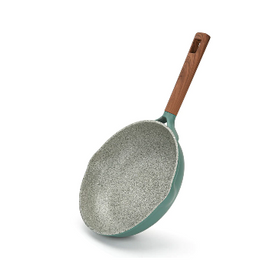
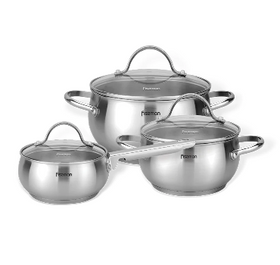
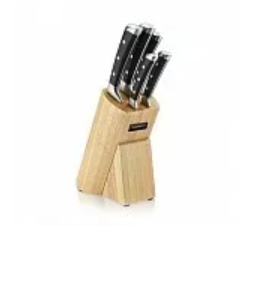
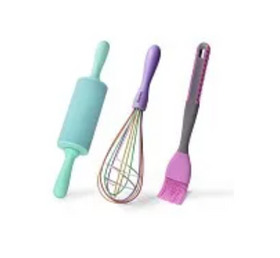
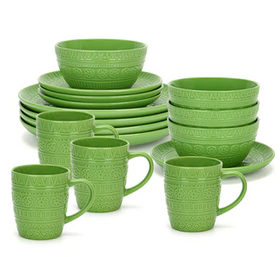
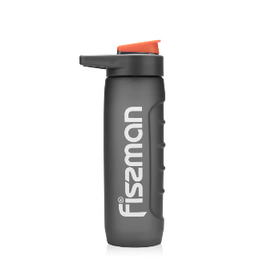
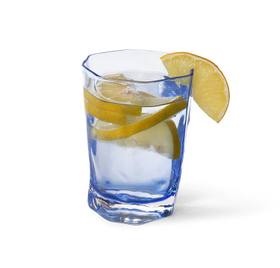





























Leave a comment